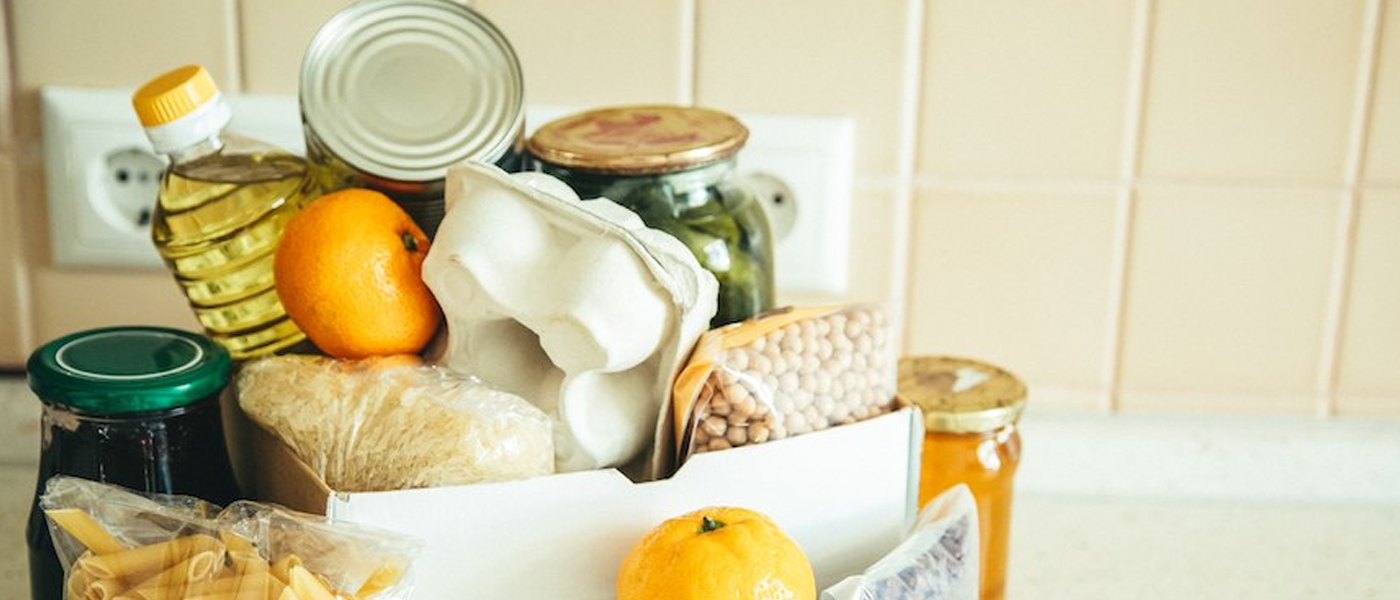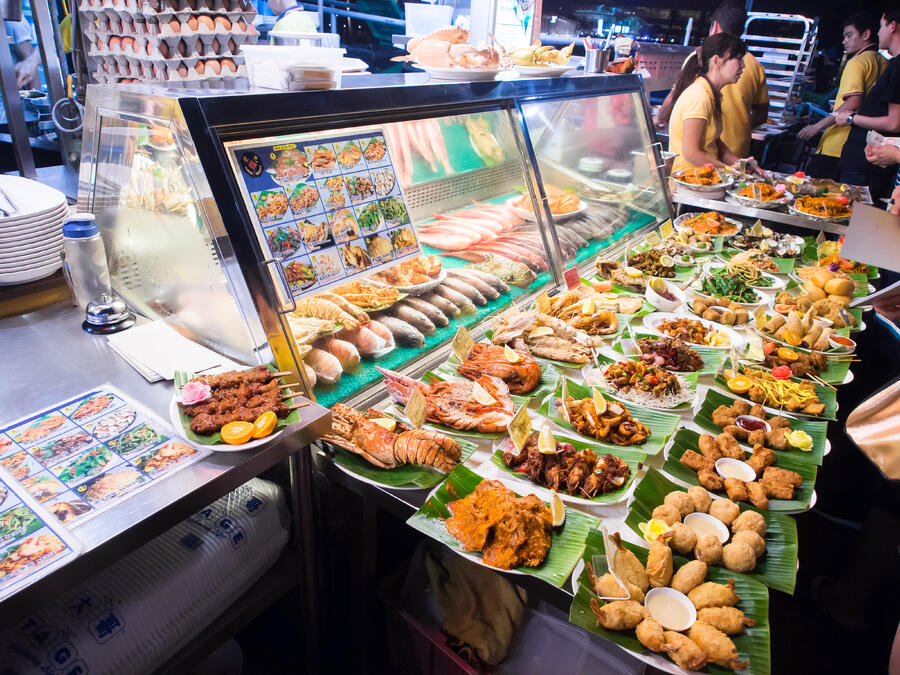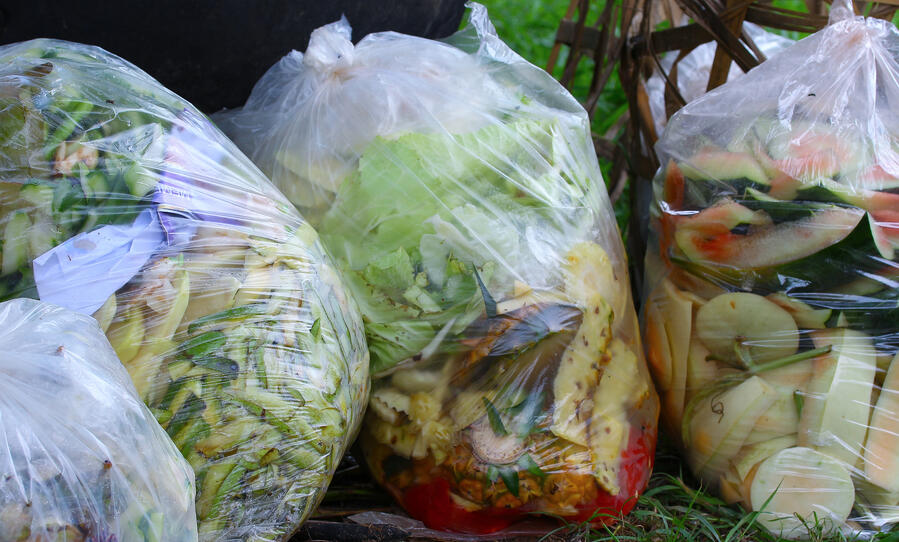- Home
- Residential
- Blog
- Understanding Food Waste in Singapore: What Can We Do to Help?
[Post Date]
Understanding Food Waste in Singapore: What Can We Do to Help?

We all have memories of our parents telling us not to waste food when we were younger. However, the issue of food waste in Singapore expands far beyond simply finishing food left on your plate. According to statistics provided by the National Environment Agency (NEA), Singaporeans disposed 744 million kilograms of food in 2019. Putting this into context, that’s about 2 bowls of rice per person wasted every day, or 51,000 double decker buses of wasted food generated every year[1]!
Our nation’s trend on food waste is on a worrying rise, with the amount increasing by about 20% over the past 10 years[2]. This figure is also expected to increase, alongside our nation’s growing population and economic activity.
To find out how we can address this unhealthy trend, an understanding of Singapore’s most typical avenues of food waste must first be reached.
How is food in Singapore wasted?
With our nation’s love and passion for food, it is no surprise that Singapore’s food waste emerges from all avenues along its supply chain. From food distributors, to supermarkets, restaurants, and finally within our own households – most of us are part of this vicious cycle.

For instance, cosmetic filtering is a common phenomenon that happens with most food retailers. This practice is exactly what it sounds like, where foodstuffs are filtered and selected based on how edible or appealing, they look. Items that fail to meet the aesthetic standards of the chefs or retailers are discarded without reaching the shelves. A study revealed that stall owners at a wet market dispose of up to 30,000 kilograms of unwanted vegetables and fruits every day based on this very reason[3].
Another top avenue for food waste boils down to the improper inventory management of food stock by restaurants and chefs. This occurs most commonly when restaurants overorder more food than what is required, to avoid running out of food during service.
Finally, food waste is something that happens in our households as well. According to a study conducted by the NEA and the Agri-Food and Veterinary Authority of Singapore (AVA), the top three reasons people at home threw food away was because “it had expired, gone mouldy, or that it looked, smelled or tasted bad”[4], which caused many Singaporeans to throw away food that may still be safe for consumption.
Why is Food Waste a Problem?
As more food is wasted each year, an increased amount will also have to be sourced to meet the growing and misrepresented demand for food within our nation. This directly places a greater amount of stress on Singapore’s food security goals, where local food producers such as our ChangeMakersSG Comcrop, are striving to meet 30% of the country’s nutritional needs by the year 2030.
Aside from having to meet a growing demand for food, Singapore is also being forced to step up its waste disposal systems to efficiently dispose and incinerate the large volumes of food wasted every day. The incinerated food is then added on to our landfills, which when buried and broken down, emits methane – a greenhouse gas known to contribute towards global warming[4].

Lastly, each step of the food supply chain involves a huge amount of resources and processes, such as food production, storage, and transportation, with each activity leaving its own carbon footprint on the planet. By consuming and wasting more food than we need, we are therefore heightening our planet’s crisis of climate change.
What Can I Do?
To better minimise food waste at home, you can begin by simply being careful to only purchase what your household needs. In doing so, you avoid having to throw away spoiled food, or grapple with whether a certain food item can still be eaten or not. On top of that, try exploring the option of using your leftovers to transform them into new dishes for the next meal, instead of being so quick to throw your excess dinner away.

Finally, in the event where you have excess food that you know you won’t be able to finish, you can donate them to the various charities and non-profit organisations that will put your food to better use. One of Geneco’s ChangeMakers The Food Bank Singapore, specialises in redistributing food that has been rejected by food retailers and manufacturers due to cosmetic reasons, giving them instead to the less privileged communities in Singapore who grapple with food insecurity every day.
While Singapore’s food waste issue is not one to be taken lightly, there are plenty of efforts, initiatives, and resources around for us to educate ourselves about regarding this issue. However, more than just looking at the solutions we have, the key to a long-term solution lies in adopting a different, better mindset on how food can be consumed, and conserved.
Everyone has a part to play, and with food being an integral part of each of our lives, the change can always be started within ourselves.
References:
- [1] Towards Zero Waste, Food Waste
https://www.towardszerowaste.gov.sg/foodwaste/ - [2] NEA, Food Waste Management
https://www.nea.gov.sg/our-services/waste-management/3r-programmes-and-resources/food-waste-management#:~:text=Food%20waste%20accounts%20for%20about,(WTE)%20plants%20for%20incineration. - [3] Tan, J (2017, January 20) Singapore: throw-away nation
https://www.straitstimes.com/singapore/singapore-throw-away-nation - [4]Elangovan, N (2019, September 10) Trash Talk: The battle of the food waste bulge — why you should throw away less food
https://www.todayonline.com/features/trash-talk-battle-food-waste-bulge-why-you-should-throw-away-less-food
Image Credits: Nylon Coffee Roasters
Source: The Sustainability Project
